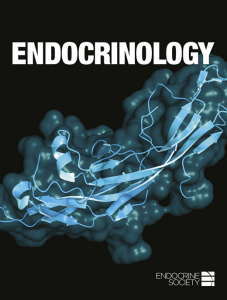
ABSTRACT:
In this article, we will discuss about the endocrinology of pregnancy. We will discuss the impact of different hormones on human pregnancy. These hormones work on the basis of feedback mechanism. It may be positive or negative feedback. For example: production of oxytocin during the baby delivery is positive feedback mechanism. Imbalance in the hormonal concentrations can cause several disabilities and sometimes mothers fail to conceive. To conceive normal, balance in the hormones is necessary.
INTRODUCTION:
Pregnancy is a remarkable physiological process that involves intricate hormonal changes to support the growth and development of the fetus. These hormonal changes are orchestrated by the endocrine system, which plays a crucial role in maintaining a healthy pregnancy. Understanding the endocrinology of pregnancy is essential for healthcare professionals to provide optimal care to pregnant women. This article aims to explore the key hormones involved in pregnancy and their roles, highlighting recent research findings. https://www.biomedcentral.com/collections/ERP
1. HUMAN CHORIONIC GONADOTROPIN:
One of the earliest hormones produced during pregnancy is human chorionic gonadotropin (hCG). It is secreted by the developing placenta and acts as a marker for pregnancy detection. hCG stimulates the corpus luteum to continue producing progesterone, which is vital for maintaining the pregnancy during the early stages.
2. PROGESTERONE:
Progesterone is a crucial hormone in pregnancy, responsible for preparing the uterus for implantation and supporting the growth of the placenta. It helps to maintain the uterine lining, preventing contractions that could lead to miscarriage. Progesterone also plays a role in suppressing the maternal immune response to prevent rejection of the fetus.
3. ESTROGEN:
Estrogen levels rise significantly during pregnancy, primarily produced by the placenta. It plays a vital role in promoting fetal development, stimulating the growth of the uterus, and increasing blood flow to the uterus and placenta. It also contributes to the development of mammary glands in preparation for breastfeeding.
4. HUMAN PLACENTAL LACTOGEN:
Human placental lactogen (hPL), also known as human chorionic somatomammotropin, is produced by the placenta. It acts as a growth hormone, promoting fetal growth and development. hPL also helps regulate maternal glucose metabolism, ensuring a steady supply of nutrients to the fetus.
5. PROLACTIN:
Prolactin, a hormone primarily associated with lactation, also plays a role in pregnancy. It helps prepare the breasts for milk production and supports the development of the mammary glands. Prolactin levels increase during pregnancy, but its full lactogenic effect is inhibited by high levels of progesterone until after delivery.
6. OXYTOCIN:
Oxytocin, often referred to as the “love hormone,” is crucial during labor and breastfeeding. It stimulates uterine contractions during labor and promotes the release of breast milk during breastfeeding. Oxytocin also plays a role in bonding between the mother and the newborn.


CONCLUSION:
The endocrinology of pregnancy involves a complex interplay of hormones that are essential for the successful progression of pregnancy and the well-being of both the mother and the fetus. Understanding the roles of these hormones is crucial for healthcare professionals to monitor and manage pregnancy-related complications effectively. Further research in this field will continue to shed light on the intricate mechanisms underlying the endocrinology of pregnancy, leading to improved care and outcomes for pregnant women.
REFERENCES:
Norwitz ER, Schust DJ, Fisher SJ. Implantation and the survival of early pregnancy. N Engl J Med. 2001;345(19):1400-1408. https://pubmed.ncbi.nlm.nih.gov/11794174
Challis JRG, Matthews SG, Gibb W, Lye SJ. Endocrine and paracrine regulation of birth at term and preterm. Endocr Rev. 2000;21(5):514-550.
Fowden AL, Forhead AJ. Endocrine mechanisms of intrauterine programming. Reproduction. 2004;127(5):515-526.
Smith R, Mesiano S, Chan EC, Brown S, Jaffe RB. Corticotropin-releasing hormone directly and preferentially stimulates dehydroepiandrosterone sulfate secretion by human fetal adrenal cortical cells. J Clin Endocrinol Metab. 2001;86(2):598-603.
Fowden AL, Ward JW, Wooding FP, Forhead AJ, Constancia M. Programming placental nutrient transport capacity. J Physiol. 2006;572(Pt 1):5-15.

